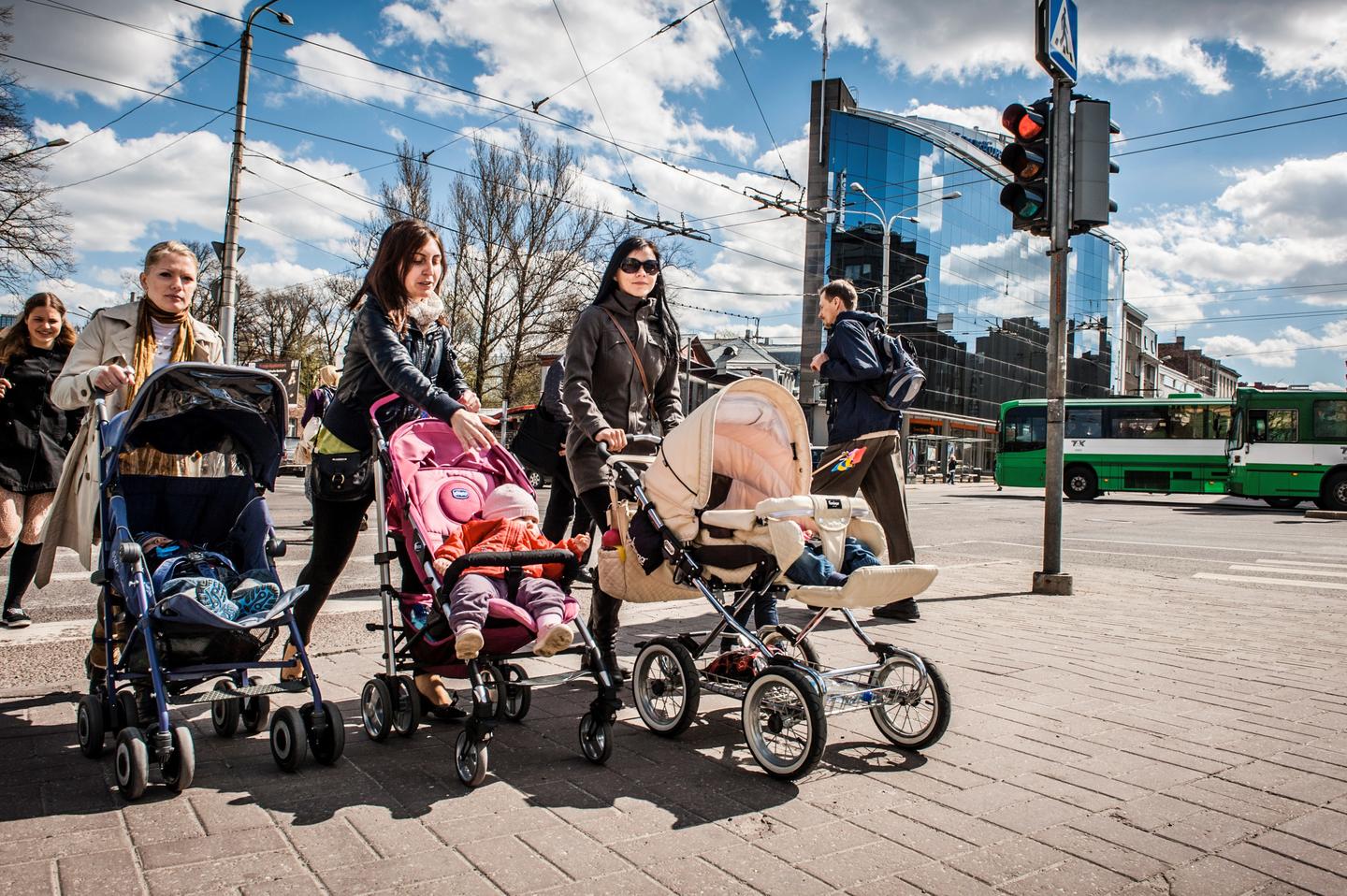Key information about the programme
- The programme is operated by: The Ministry of Social Affairs
- The Donor Programme Partner in this programme is: The Norwegian Directorate of Health (HDIR), the Norwegian Institute of Public Health (FHI) and the Norwegian Directorate of Cultural Heritage (RA)
- The programme's objective is: Strengthened social and economic cohesion
- The programme funding (excluding co-financing) amounts to €21 million and is funded through the EEA Grants (€10.6 million) and Norway Grants (€7.4 million).
Why is the programme needed?
In order to build a cohesive and sustainable society in Estonia, it is essential to address the challenges that put cohesion at risk – poor health, low level of education, poverty, social exclusion, gender discrimination and violence, stigmatisation, risks related to minority background and regional disparities.
The local development programme will address challenges in Estonia related to the wellbeing of children and youth, gender-based violence, the health care system and revitalization of cultural heritage. The programme will address early school leaving, limited services and support available for vulnerable children and youth e.g. in the justice and education systems and shortage of extrajudicial alternatives to sanctions such as social and educational programmes that could hinder reoffending. Gender equality is still a challenge and approximately a third of Estonian women has experienced physical and/or sexual violence in the course of the last year and many are unable to escape their abusers because of economic dependency and need shelter as well as psychological and legal support. Prostitution is also a problem in the country and Estonia has become a destination for trafficking of women from third countries. Several aspects of public health call for improvement including the limited physical activity of children, lack of processes to support and treat people with chronic health problems and the need for support for mothers and children from pregnancy through early childhood. Estonia also faces challenges when it comes to preserving cultural heritage in city centres as many buildings remain empty because of depopulation and demographic challenges.
What will the programme achieve and who are the beneficiaries?
Children and youth
Two pre-defined projects which will establish a mediation system and develop a specialised juvenile justice approach to support the wellbeing of vulnerable children and youth. Two open calls will support projects developing models for integrated services at local level and to pilot measures to support transition of disadvantaged children and youth across school levels from education to the labour market, including smart solutions in youth work. Finally, two small grants schemes will implement and raise awareness of restorative justice measures for youth and develop and pilot career orientation programmes.
Gender equality and domestic and gender-based violence
Domestic and gender-based violence and gender inequalities will be addressed through a pre-defined project to strengthen victim support systems and another to establish a virtual competence centre for gender equality. Furthermore, an open call will support awareness raising on gender-based violence and to discourage demand for prostitution. There will also be a small grants scheme to train specialists in how to address gender-based violence and to develop a programme to inform sex-buyers of the inherent abuse entailed in prostitution.
Health care and public health
To improve prevention and reduce inequalities in health the programme supports three pre-defined projects. The first will increase physical activity of schoolchildren, the second increase public health competence and capacity of local governments and the third will develop evaluation models and handling system for chronically mentally ill patients. In addition, a project to develop and pilot integrated service models at local level and to develop a home visitation and early intervention model will be supported through an open call.
Revitalisation of cultural heritage and local development
The last component of the programme will revitalize historic town centres through heritage-based local development by way of one pre-defined project and one open call for revitalization of cultural heritage buildings in small towns for community purposes.
How will the programme strengthen bilateral relations?
The programme aims to strengthen bilateral relations between Estonia and Iceland, Liechtenstein and Norway and all projects will have a partner from one of the Donor States. Partnerships will be facilitated through matchmaking events and activities in conjunction with the launch of calls for proposals. These partnerships can result in mutually beneficial activities and long-lasting cooperation between the partners.
Availability of funding through open calls
Funding will be made available through open calls for proposals, tentatively timed:
- Call 1: Enhanced wellbeing of children and youth, to be launched in Q1 2020
- Call 2: Enhanced wellbeing of children and youth, to be launched in Q1 2020
- Small grant scheme 1a: Enhanced wellbeing of children and youth, to be launched in Q1 2020
- Small grant scheme 1b: Enhanced wellbeing of children and youth, to be launched in Q3 2020
- Small grant scheme 2: Enhanced wellbeing of children and youth, to be launched in Q1 2020
- Call 3: Reduced domestic and gender-based violence and gender inequalities, to be launched in Q1 2020
- Small grant scheme 3: Reduced domestic and gender-based violence and gender inequalities, to be launched in Q1 2020
- Call 4: Improved prevention and reduced inequalities in health, to be launched in Q1 2020
- Call 5: Historic town centres revitalised through heritage-based local development, to be launched in Q1 2020
Download the full programme agreement for more detailed information about the programme.
More information can also be found on the Estonian EEA and Norway Grants Website
